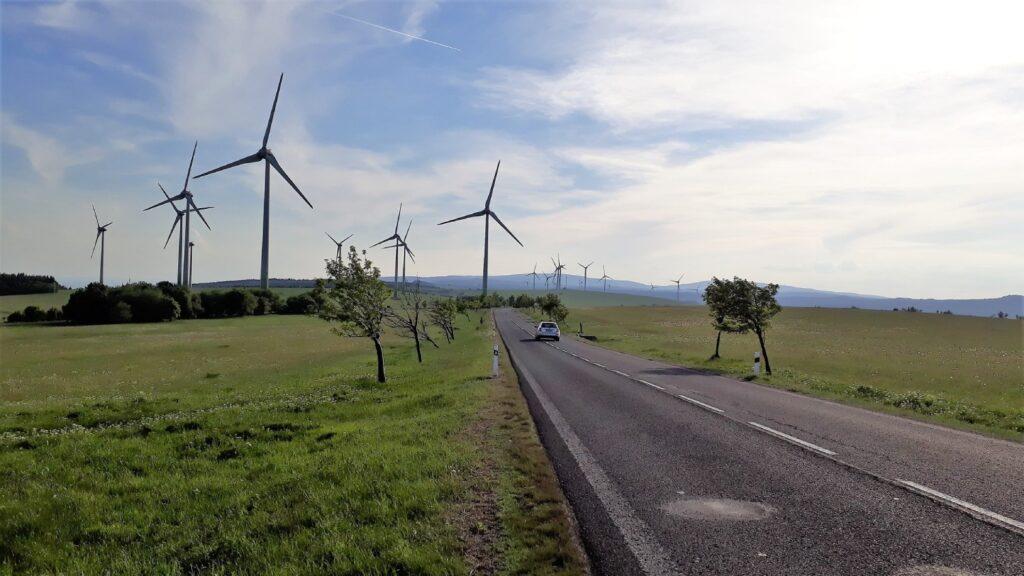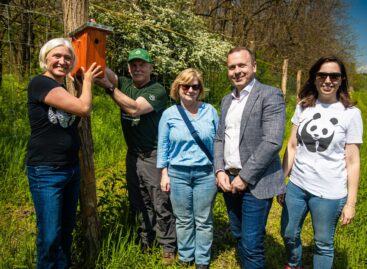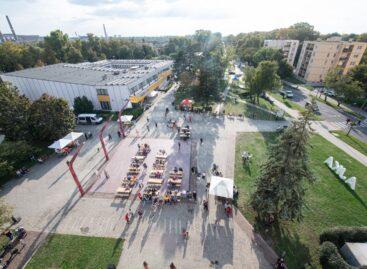Incomplete regulation, missing regions – WWF opinion on the wind energy regulation
WWF Hungary sees the completion of the draft regulation on facilitating the installation of wind farms as a step forward, but at the same time draws attention in its professional position statement to the fact that in its current form it is not sufficiently supportive and is questionable from a methodological point of view.

WWF Hungary is pleased to see that the Government has begun amending the legislation facilitating the licensing of wind farms, and considers it positive that several ministries participated in the consultation process that WWF initiated on this matter within the framework of the RENewLand project. The nature conservation organization, however, emphasizes that the current draft regulation ideas are insufficient to truly support the domestic spread of wind energy, and are methodologically problematic in several respects.
“The draft does not provide a real answer to the challenges of climate change and does not ensure that Hungary meets the goals set out in the European Union’s Renewable Energy Directive (RED III). Therefore, WWF Hungary calls for further professional consultations and revised regulations in several respects”
– said Csaba Csontos, head of the civil organization’s climate protection program.
WWF Hungary’s detailed The main proposals of the professional position statement are as follows:
1. According to the draft decree, simplified areas could be designated in those districts where there are already wind turbines with certain permits. WWF Hungary proposes that the designation of simplified licensing areas should not only be possible where wind farms are already operating. The current idea would exclude 90% of districts, including disadvantaged regions in eastern and southern Hungary. WWF Hungary believes that the facilitated areas should be designated in as many regions of the country as possible, in a transparent and professional manner, following the methodological approach developed during the RENewLand project.
2. The draft regulation and the related legislation in force do not currently regulate the safety distance of wind turbines from protected natural areas, Natura 2000 areas, wetlands and infrastructure elements. However, the harmonization of safety distances and spatial planning rules is essential. Precisely defined protection zones around nature conservation, water and ecological areas and a unified, up-to-date geographic information system are needed.
3. The rules on military radars in their current form unreasonably restrict investments. WWF Hungary proposes a more flexible, individual assessment-based approach that takes into account both national security and renewable energy goals.
4. The draft law removes wind farms under one and a half hectares from one of the most important agricultural land protection restrictions, meaning that in the case of investments, the examination of location-specificity and the obligation to provide replacement land without size restrictions will be eliminated. On the other hand, the regulation should guarantee the protection of agricultural lands and natural habitats. According to WWF, the exchange area obligation should only be abolished in the case of investments that do not affect nature conservation or high biological value areas.
“WWF Hungary emphasizes that the promotion of renewable energy developments and nature protection should not be implemented against each other, but rather in a mutually reinforcing manner. The organization therefore asks decision-makers to further develop the draft regulation taking into account professional suggestions”
– added Csaba Csontos.
WWF Hungary’s detailed policy recommendation developed within the framework of the RENewLand project can be read on the WWF Hungary website.
Related news
When artificial intelligence helps with climate protection
🎧 Hallgasd a cikket: Lejátszás Szünet Folytatás Leállítás Nyelv: Auto…
Read more >The Responsible Gas Foundation and WWF Hungary are launching a joint campaign
🎧 Hallgasd a cikket: Lejátszás Szünet Folytatás Leállítás Nyelv: Auto…
Read more >Related news
II. Green Gastronomy – Marketing Communication Workshop organized by the MMSZ HoReCa and Green Section
🎧 Hallgasd a cikket: Lejátszás Szünet Folytatás Leállítás Nyelv: Auto…
Read more >Retail sales of organic products in Hungary increased by 13.9% – our country is the second fastest growing market in the European Union
🎧 Hallgasd a cikket: Lejátszás Szünet Folytatás Leállítás Nyelv: Auto…
Read more >Nearly 140 domestic suppliers, 60% growth – SPAR Regions Treasures program accelerates with AI solutions
🎧 Hallgasd a cikket: Lejátszás Szünet Folytatás Leállítás Nyelv: Auto…
Read more >







